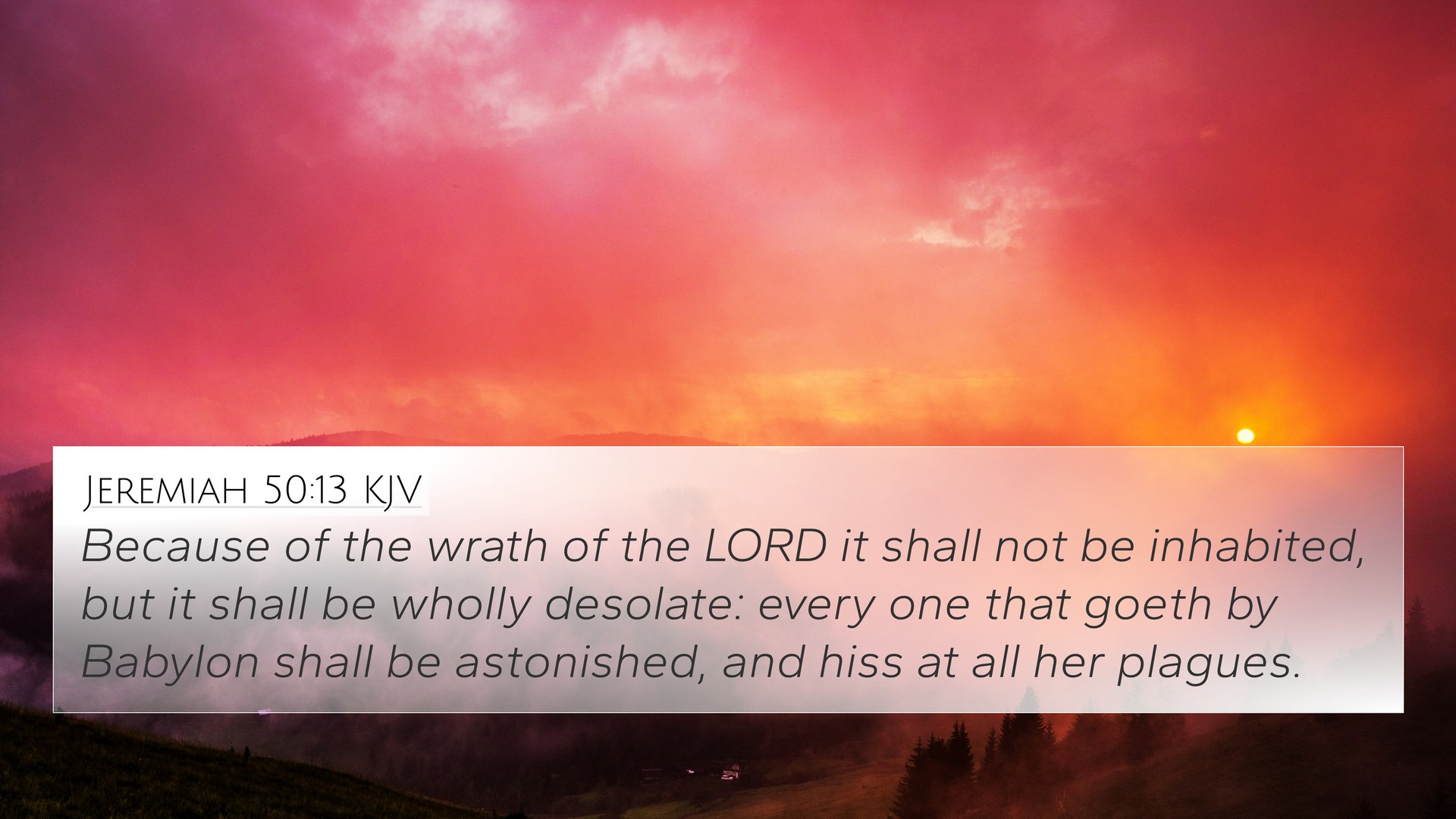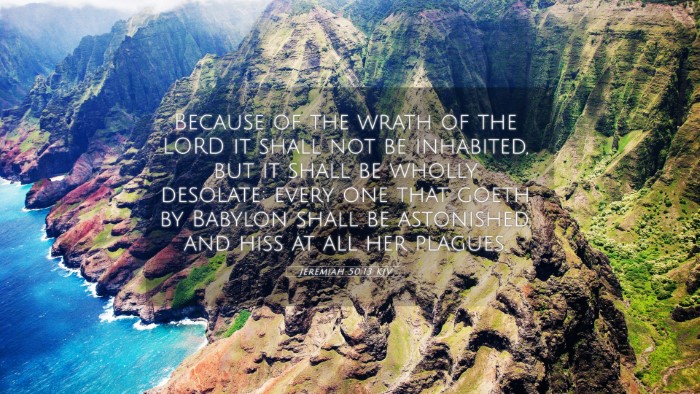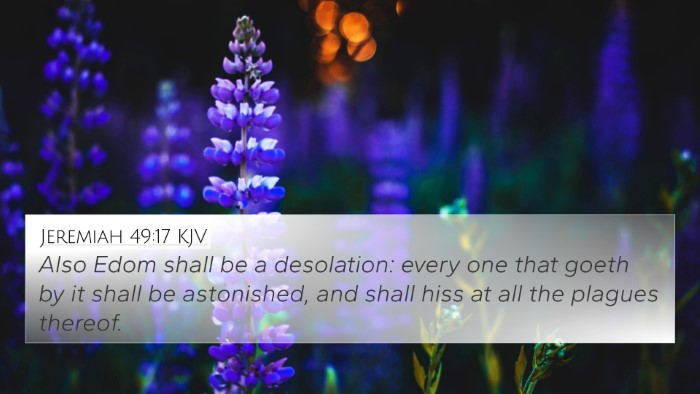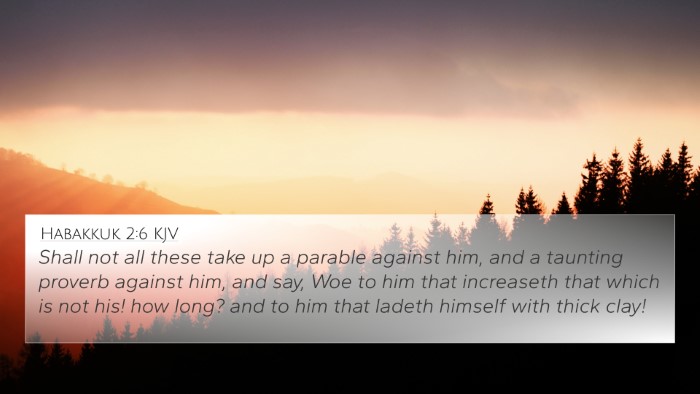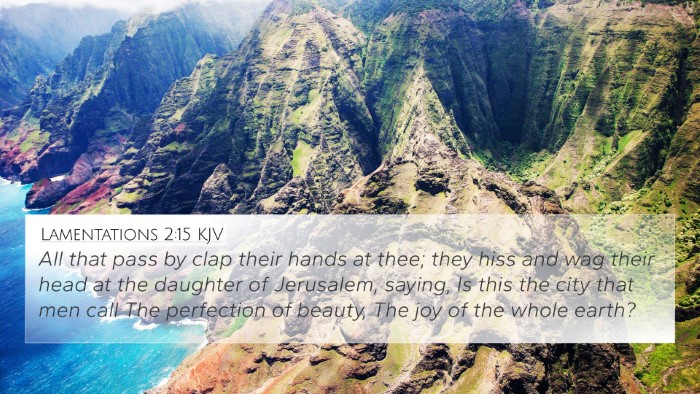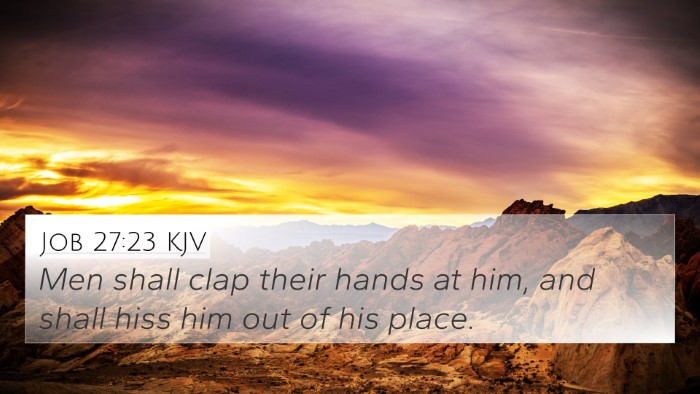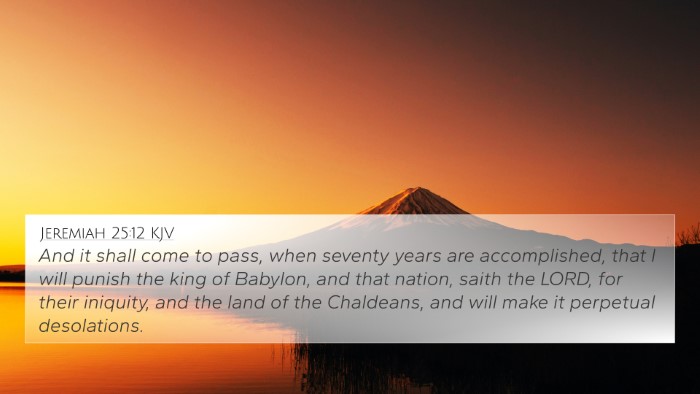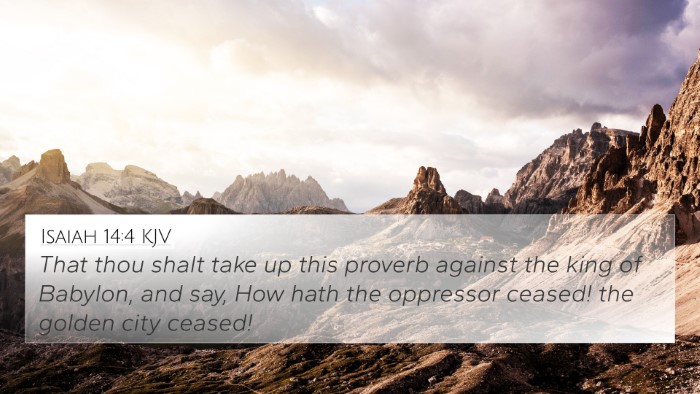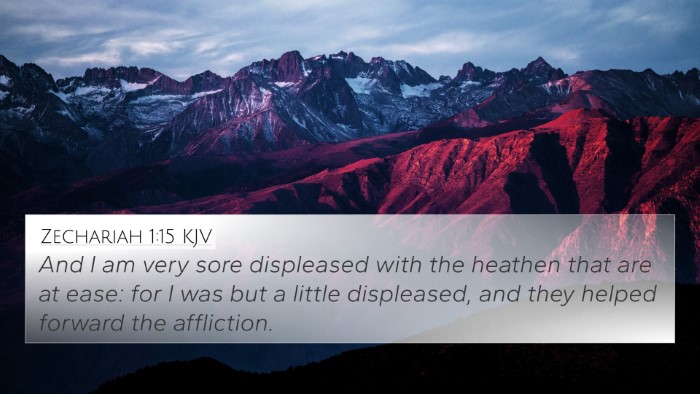Understanding Jeremiah 50:13
The verse Jeremiah 50:13 states:
"Because of the wrath of the LORD, it shall not be inhabited, but it shall be wholly desolate: every one that goeth by Babylon shall be astonished, and hiss at all her plagues."
Summary of Meaning
Jeremiah 50:13 presents a prophetic declaration concerning the fate of Babylon due to the divine judgment of God. The emphasis is on the total desolation of the city as a result of the Lord's wrath. This commentary synthesizes insights from Matthew Henry, Albert Barnes, and Adam Clarke to elucidate the verse's meaning.
Diving Deeper into the Verse
- Divine Wrath: The "wrath of the LORD" indicates God's righteous anger against Babylon for its sins. Matthew Henry notes that God’s judgment is inevitable and serves as a reminder of divine holiness.
- Inhabitation and Desolation: The phrase "shall not be inhabited" underscores the extent of destruction. Albert Barnes highlights that Babylon’s complete ruin serves as a warning to nations that oppose God.
- Theastaing Wonder: The phrase "every one that goeth by Babylon shall be astonished" conveys the shock and horror visitors will feel, akin to the response in Revelation 18:10 regarding Babylon’s final fall, as mentioned by Adam Clarke.
Biblical Cross-References
This verse is intricately connected to several other Bible verses, creating a web of thematic links. Here are some key cross-references:
- Isaiah 13:19-22: Describes the destruction of Babylon and serves as a prophetic parallel.
- Revelation 18:2: Captures the fall of Babylon as an emblem of God's judgment against corruption.
- Jeremiah 25:12: Discusses God’s judgment upon Babylon for its actions and oppression.
- Jeremiah 51:29: Proclaims the impending doom of Babylon, reinforcing the prophecies stated in chapter 50.
- Zechariah 2:7: Indicates the concept of escape from destruction for God’s people, contrasting Jerusalem with Babylon's fate.
- Isaiah 47:1: A lament over Babylon, emphasizing its fall from prominence and wealth.
- Psalm 137:8-9: Reflects on the sorrow of the Israelites in Babylon, emphasizing its eventual destruction.
- Lamentations 4:22: The hope for Israel's restoration after Babylon’s downfall.
- Romans 9:22-23: Discusses God's purpose in showing His wrath and mercy, connecting the fate of nations with divine purpose.
- Revelation 14:8: Echoes the announcement of Babylon's fall, deepening the theme of God's promised judgment.
Connections Between Bible Verses
Thematic connections across these verses reveal a profound narrative of God’s sovereignty and justice. The prophetic books, particularly Jeremiah and Isaiah, lay a foundation for understanding the role of divine judgment, while Revelation encapsulates the apocalyptic culmination of these themes.
Tools for Bible Cross-Referencing
For those looking to delve deeper into cross-referencing, here are some helpful tools:
- Bible Concordance: A reference tool that helps find where keywords appear throughout the Bible.
- Bible Cross-Reference Guide: Provides guidance on how verses interconnect, aiding in comparative studies.
- Cross-Reference Bible Study: Methods for engaging with Scripture to find related passages and themes.
- Bible Chain References: A systematic linking of verses that enhances thematic studies.
- Bible Reference Resources: Comprehensive materials that support in-depth study and exploration of biblical texts.
Practical Application
Understanding the desolation of Babylon in Jeremiah 50:13 is crucial for grasping the extent of God’s judgment and mercy in the biblical narrative. It serves as both a warning against pride and defiance of God and a reminder of His sovereignty over nations and history.
Reflective Questions
- What does the desolation of Babylon teach about the nature of God's justice?
- How do the judgments against Babylon reflect on modern nations?
- In what ways can we apply the lessons of Jeremiah 50:13 to our daily lives?
Conclusion
Jeremiah 50:13, together with its cross-references, invites believers to contemplate the seriousness of divine judgment and the hope for redemption. By engaging with these texts through tools of cross-referencing, we can better understand the interconnectedness of Scripture and deepen our insights into biblical theology.
